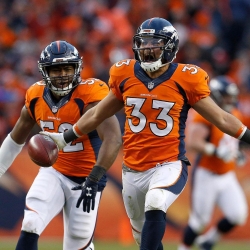Cynthia Coffman, the Colorado Attorney General, said it will take a change in her state’s laws to legalize sports betting. Coffman added that Colorado’s legislature would not need to change the state constitution.
The Colorado AG said her department had conducted a full legal analysis of the question in the two and a half months since the US Supreme Court struck down the Professional and Amateur Sports Protection Act (PASPA) which banned sportsbooks in 46 states.
In her first statement on the question since the May 14 Supreme Court decision, Cynthia Coffman said her office had reached a firm conclusion. Coffman said, “After conducting a full legal analysis I have determined that commercial sports betting is not subject to state constitutional restrictions, but is prohibited gambling under Colorado’s current criminal code.”
The attorney general of Colorado added, “Whether or not sports gaming should be legalized in our state will ultimately be up to the legislature to determine.”
Title 18 Consideratons
Coffman said that Title 18 in the Colorado Revised Statutes bans land-based, online, and mobile sports betting in Colorado. If lawmakers want to legalize sports betting to allow bets on Broncos, Rockies, or Nuggets games, then they would have to repeal or change Title 18.
The conclusions about Title 18 was expected by legal experts. The real suspense involved whether a 1992 Colorado constitutional amendment which allowed “limited gambling” in Central City, Blackjack, and Cripple Creek applied to sports betting. Cynthia Coffman ruled that the 1992 amendment did not apply to sportsbooks, so a new law would be needed.
Limited Gambling Provisions Discussed
In her office’s estimation, the 1992 amendment applied only to slot machines, blackjack, and poker. Coffman stated, in her opinion, “Because commercial sports betting, as contemplated in this formal opinion, is not ‘limited gaming,’ this constitutional provision is not relevant.”
For proponents of sports betting, the “limited gambling” ruling is good news. Had Coffman ruled differently, then it would require a constitutional amendment to have sports betting outside those three cities. That means a state referendum will not be required to change the law — which has proven to be a high hurdle in the past.
Colorado Gaming Association Voices Criticism
Spokespeople for gaming venues in Cripple Creek, Blackhawk, and Central City criticized the Colorado attorney general’s decision. In fact, they disputed whether a sitting attorney general has the authority to declare the legality of gambling laws in Colorado — a sign that sports betting legality could be headed to a state court in Colorado.
The Colorado Gaming Association (CGA) released a statement which said, “The Colorado courts only give ‘respectful consideration’ to attorney general opinions and, many times, find that an AG’s opinion is incorrect. Attorney General Coffman’s conclusion that horse and dog racing are ‘not materially different’ than professional and collegiate sports betting is factually and, we believe, legally incorrect.”
How Pari-Mutuel Bets Work
The CGA might be prepared to argue that horse and dog racing are pari-mutuel wagers, where the betting vigorish is taken and taxes paid, then the payoff odds are calculated by sharing the pool among all winning bets. Pari-mutuel betting, called the Tote in some countries, is common in sports where competitors finish in a pecking order.
Sports betting has a line set by an oddsmaker. While adjustments are made according to the level of betting on one proposition or the next, the bookmaker sets the odds and the rake according to their whim. Good business assures relatively fair odds on money-line and point spread betting, but they are not determined the same as pool betting.
Of course, sports bettors will argue that their form of betting requires more skill than pool betting. Those who back sports betting believe wagers on dogs and horses are innately unpredictable and the vig is too high. They point to handicappers, expert bettors can beat the odds and consistently win, as a sign that sports betting is more a game of skill.
Colorado Sports Betting Bill
Whatever the argument might be, changing the gaming laws of Colorado will not be easy. Both houses of the legislature will have to pass a sports betting bill and then the winner of the 2018 gubernatorial race — U.S. Rep. Jared Polis (D) or State Treasurer Walker Stapleton (R) — would need to sign the bill into law.
Cynthia Coffman predicted the Colorado state legislature would take up the issue. The AG said, “I anticipate that the members of the General Assembly will receive substantial input from their constituents and other stakeholders regarding the potential societal consequences or benefits that will need to be weighed carefully to ensure the appropriate outcome for Colorado.”

